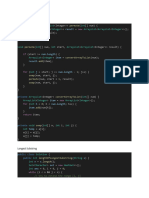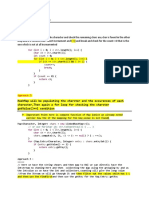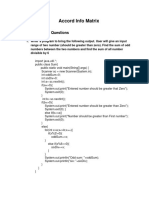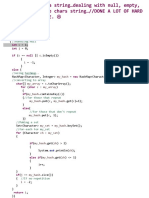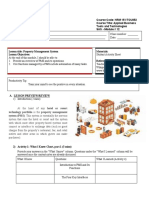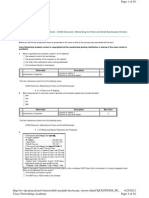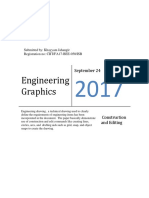Top 10 HashMap Coding Problems (with Solutions)
1. Two Sum Problem
Find two numbers in an array that sum to a target value.
Code:
int[] twoSum(int[] nums, int target) {
Map<Integer, Integer> map = new HashMap<>();
for (int i = 0; i < nums.length; i++) {
int complement = target - nums[i];
if (map.containsKey(complement)) {
return new int[]{map.get(complement), i};
}
map.put(nums[i], i);
}
return new int[]{-1, -1};
}
2. First Non-Repeating Character
Return the first character that appears only once.
Code:
char firstNonRepeat(String s) {
Map<Character, Integer> map = new LinkedHashMap<>();
for (char c : s.toCharArray()) map.put(c, map.getOrDefault(c, 0) + 1);
for (var entry : map.entrySet()) if (entry.getValue() == 1) return entry.getKey();
return '_';
}
3. Find All Duplicates in an Array
Return elements that appear more than once.
Code:
List<Integer> findDuplicates(int[] nums) {
Map<Integer, Integer> map = new HashMap<>();
List<Integer> res = new ArrayList<>();
for (int n : nums) {
map.put(n, map.getOrDefault(n, 0) + 1);
}
for (var e : map.entrySet()) {
if (e.getValue() > 1) res.add(e.getKey());
}
return res;
}
4. Most Frequent Element in Array
Find the most frequent element.
Code:
int mostFrequent(int[] nums) {
� Map<Integer, Integer> map = new HashMap<>();
for (int n : nums) map.put(n, map.getOrDefault(n, 0) + 1);
int maxKey = nums[0];
for (var e : map.entrySet()) if (e.getValue() > map.get(maxKey)) maxKey = e.getKey();
return maxKey;
}
5. Group Anagrams
Group all anagrams together.
Code:
List<List<String>> groupAnagrams(String[] strs) {
Map<String, List<String>> map = new HashMap<>();
for (String s : strs) {
char[] ch = s.toCharArray();
Arrays.sort(ch);
String key = new String(ch);
map.computeIfAbsent(key, k -> new ArrayList<>()).add(s);
}
return new ArrayList<>(map.values());
}
6. Check Anagram
Check if two strings are anagrams.
Code:
boolean isAnagram(String s, String t) {
if (s.length() != t.length()) return false;
Map<Character, Integer> map = new HashMap<>();
for (char c : s.toCharArray()) map.put(c, map.getOrDefault(c, 0) + 1);
for (char c : t.toCharArray()) {
map.put(c, map.getOrDefault(c, 0) - 1);
if (map.get(c) < 0) return false;
}
return true;
}
7. Subarray Sum Equals K
Count subarrays with sum = K.
Code:
int subarraySum(int[] nums, int k) {
Map<Integer, Integer> map = new HashMap<>();
map.put(0, 1);
int count = 0, sum = 0;
for (int n : nums) {
sum += n;
if (map.containsKey(sum - k)) count += map.get(sum - k);
map.put(sum, map.getOrDefault(sum, 0) + 1);
}
return count;
�}
8. Longest Substring Without Repeating Characters
Find length of longest substring without repeating characters.
Code:
int lengthOfLongestSubstring(String s) {
Map<Character, Integer> map = new HashMap<>();
int left = 0, maxLen = 0;
for (int right = 0; right < s.length(); right++) {
char c = s.charAt(right);
if (map.containsKey(c) && map.get(c) >= left)
left = map.get(c) + 1;
map.put(c, right);
maxLen = Math.max(maxLen, right - left + 1);
}
return maxLen;
}
9. Intersection of Two Arrays
Find intersection of two arrays.
Code:
int[] intersect(int[] nums1, int[] nums2) {
Map<Integer, Integer> map = new HashMap<>();
List<Integer> res = new ArrayList<>();
for (int n : nums1) map.put(n, map.getOrDefault(n, 0) + 1);
for (int n : nums2) {
if (map.getOrDefault(n, 0) > 0) {
res.add(n);
map.put(n, map.get(n) - 1);
}
}
return res.stream().mapToInt(i -> i).toArray();
}
10. Word Frequency Counter
Count frequency of words in a sentence.
Code:
Map<String, Integer> wordFrequency(String text) {
Map<String, Integer> map = new HashMap<>();
String[] words = text.split("\\s+");
for (String w : words) map.put(w, map.getOrDefault(w, 0) + 1);
return map;
}























